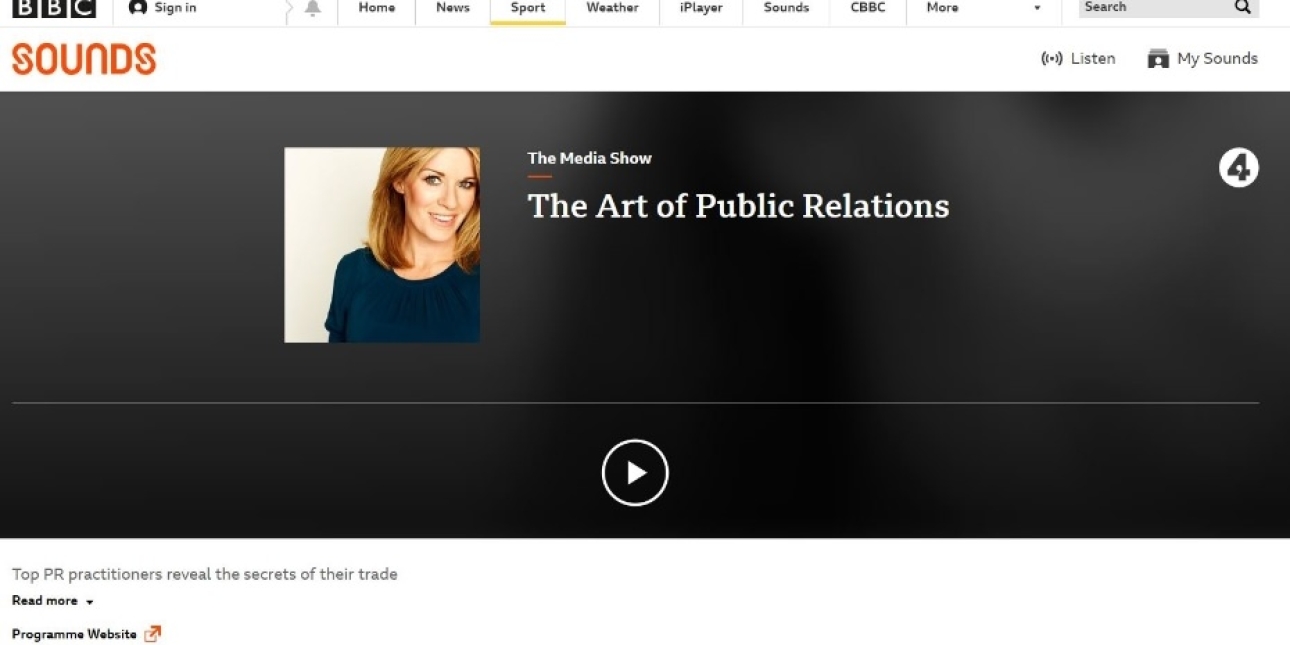PUBLIC RELATIONS
Thursday 7th February 2019
Getting a word in edgeways… (Or how not to get lost on a panel!)
We say in media training that the sign of a successful interview is an invitation to return for another one. I’d been on Radio 4’s The Media Show before, so that was reassuring. First time round it was a short discussion between myself and a university professor, debating the validity of a degree course that combined journalism and PR.
My return visit however was to be more demanding as it was a 30-minute long panel, hosted by Andrea Catherwood, featuring 3 other speakers plus me.
It was an impressive line-up: Alan Edwards is the founder of the Outside Agency, which has a reputation of looking after the rich and famous, including celebrities like Jerry Hall, the Rolling Stones and David Beckham; Abzed Managing Director, Ian Gregory, meanwhile, runs campaigns about controversial issues such as fracking and e-cigarettes; and Polly Curtis was the Editor-in-Chief of Huff Post UK.
Needless to say, no one was backwards with expressing an opinion. And that’s the issue: with a full house of eloquent speakers, how do you get a word in edgeways?
As with any other broadcast programme, The Media Show production team would have done their research and have a strong idea of what they’d like the finished programme to be like. So, contributors are steered by the presenter, who is in turn guided by the producers. I didn’t manage all of them by any means, but here are some tips that might help you get heard.
- Be prepared to be conversational. Worse than launching into a monologue is the interviewee who just dries up. If you’re mono-syllabic the presenter will fear there’ll be gaps in the conversation, so they’ll direct questions at other guests instead of you.
- Have a view. You need to talk about things that are relevant to the programme and interesting to listeners/viewers. Obviously, a conversation can take an unexpected turn but you should still have a reasonable idea of what to expect, so should have an opinion ready.
- Think about what other interviewees might have to say. And if you disagree with them even better. Whether radio or TV, broadcast is about entertainment and this is why broadcasters love a bit of controversy. It’s dull listening/viewing if everyone sits on the fence and agrees.
- Make the most of body language to engage others. It’s particularly important to look at the presenter, to indicate you’re ready to speak. Nodding your head is a positive gesture and can suggest you have something to say. Or put your hand up. Not like an enthusiastic school kid, but a gentle movement upwards can attract attention and is much better than barging in verbally.
- Verbal language is useful too. You can use phrases that help you re-enter the conversation: “I’d like to interject here… Just picking up on what you’ve just said…” Polite, firm and confident are the qualities we all need to aspire to here!
To hear Keren on Radio 4’s The Media Show click on the link here: https://www.bbc.co.uk/programmes/m0001v7p
